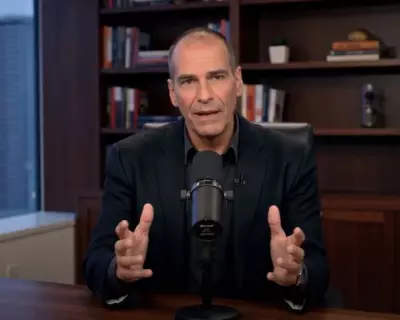
In the world of professional communication, certain phrases can make or break your credibility instantly. According to one communications expert, there's a particular expression that could be seriously damaging your professional reputation without you even realising it.
The Credibility Killer Phrase
Luke Williams, a communications professional with extensive experience in media and public relations, has identified what he calls the ultimate credibility killer. The phrase in question? 'To be honest with you' or its close cousin 'To tell you the truth'.
Williams explains that these seemingly harmless expressions actually send the wrong message to your audience. 'When you say 'to be honest with you', it implies that everything else you've said up to that point wasn't honest,' he warns.
Why This Phrase Is So Damaging
The problem lies in the subconscious message these phrases convey. Williams suggests they create immediate doubt in the listener's mind about your previous statements and overall integrity.
'You're effectively telling people you have two modes: one where you're not being entirely truthful, and another where you are,' says Williams. This unintentionally undermines your authority and makes everything you say afterwards seem questionable.
Professional Alternatives That Build Trust
Instead of using these credibility-damaging phrases, Williams recommends several alternatives that maintain your professional image:
- 'The reality is...' - This presents your point as factual without questioning your previous honesty
- 'What's important to understand is...' - This directs attention to key information without the honesty disclaimer
- 'From my perspective...' - This acknowledges subjectivity without implying previous dishonesty
- Simply stating your point directly without any introductory phrase
The Psychology Behind Language Choices
Williams emphasises that language choices significantly impact how we're perceived in professional environments. 'People make judgements about your competence and trustworthiness based on the words you choose,' he notes.
This particular phrase is especially problematic because it's often used unconsciously by people trying to emphasise their sincerity, not realising they're achieving the exact opposite effect.
Broader Implications for Professional Communication
The awareness of such linguistic pitfalls is becoming increasingly important in today's professional landscape. With remote work and digital communication becoming more prevalent, every word choice carries weight.
Williams suggests that professionals at all levels should regularly audit their communication habits. 'Being mindful of these small language tweaks can dramatically improve how you're perceived in meetings, presentations, and everyday professional interactions,' he advises.
Eliminating this one simple phrase could be the key to presenting yourself as more credible, trustworthy, and authoritative in your professional life.





